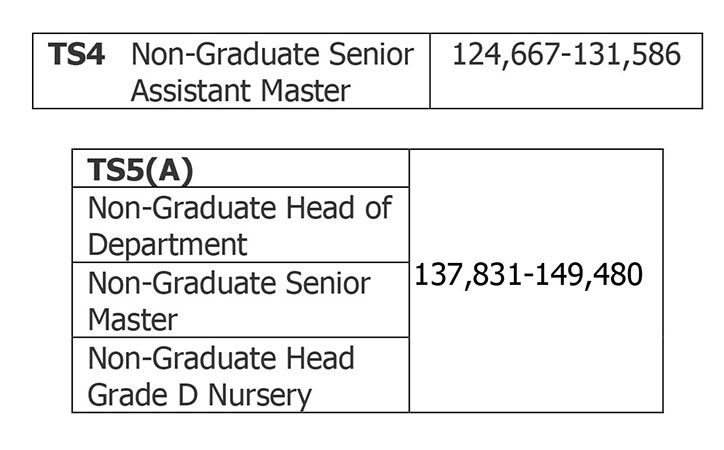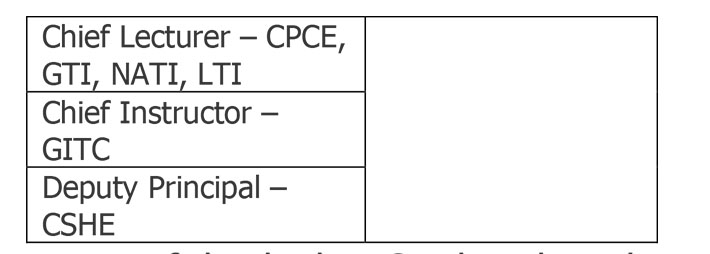Dear Editor,
Thanks for publishing in SN 14 July, the letter captioned `Underpaid teachers just one of the issues besetting schools’. It roused a number of calls and contacts, particularly from teachers.
The latter brought to my attention firstly that I omitted the commentary on Table 3. This was an inadvertent omission.
But more importantly, among the observations brought to my attention was the extended period of training a teacher must undertake at the Cyril Potter College of Education (CPCE) and the University of Guyana in order to become a Graduate – up to six years.
There is also talk of recently being tasked with having to give one extra hour per week to address the issue of under-performance – a patently simplistic approach to a very fundamental problem, as it hardly addresses the tangle of social deficits with which schools must currently deal, amongst which is the negative impact of the technology in which indifferent parents allow their children to indulge.
Then one respondent raised concern about the possible negative implications of single parents being allowed to return to the classroom – an eventuality, it is argued, for which teachers would need specific preparation.
It is in relation to the above issues, and more, it was felt necessary to emphasise the further constipation of the compensation structure at 2018 as expressed in the Estimates of 2019. Further samples below.
 i) Here again Temporary Appointment is mixed with Permanent Appointment and treated equally.
i) Here again Temporary Appointment is mixed with Permanent Appointment and treated equally.
ii) Incidentally, there is little comparable publicity regarding the achievements of GTI and other Technical Institutes. What ‘assessment’ mechanism is applied?
iii) To what extent is the Board of Industrial Training involved?
 It is instructive that these two Grades apply to Non-Graduates only; while a Qualified Master is treated as Temporary and graded as low as TS3.
It is instructive that these two Grades apply to Non-Graduates only; while a Qualified Master is treated as Temporary and graded as low as TS3.
 It is interesting to note that Non-Graduates can be promoted from Grade TS4 to Grade TS9, without any incentive for them to graduate.
It is interesting to note that Non-Graduates can be promoted from Grade TS4 to Grade TS9, without any incentive for them to graduate.
 Deputy Principal – CSHE Once again the maximum of this higher Grade is less than that of lower Grade TS14.
Deputy Principal – CSHE Once again the maximum of this higher Grade is less than that of lower Grade TS14.
It would be useful to have confirmed what age of students attend the Technical Institutes; and importantly, how their performance is ‘assessed’.
 What can possibly be ‘Special’ about a fixed salary for the rest of a professional career?
What can possibly be ‘Special’ about a fixed salary for the rest of a professional career?
How is pension affected?
This is hardly a position to which to aspire.
It is difficult to conceive that the parties concerned continue to agree to this constipated compensation structure – to which the Teaching Service Commission has been quite indifferent. Surely it would help, if comparabilities were investigated in neighbouring CARICOM countries.
Yours faithfully,
E.B. John










